Imagine, if you will, that education was organised centrally by the European Union for all of the member states. Each month, the 27 EU education ministers would meet in Brussels to discuss things like class size, curriculum, compulsory subjects and teacher training.
And imagine that Joe McHugh's successor had been sacked after three weeks, and now another education minister was resigning. The teachers' unions and parents' associations would be extremely concerned about the political dynamic and vocal about those concerns.
What if health was centrally organised by Europe, and Simon Harris and Stephen Donnelly had both come and gone, and now Donnelly's successor was departing under a cloud? Doctors and nurses' representatives would be leading the news every night, and rightly so.
Farming
Of course, it isn't either health or education that is run in centrally across the EU - it's farming. The Common Agricultural Policy has been a central tenet of the entire European project, and one of its great successes. While farming faces many challenges, the EU's 10.5 million farmers produce food with standards of animal welfare, environmental oversight and traceability unmatched anywhere in the world.
In addition, the CAP is also a social policy instrument that has prioritised the family farm, slowed upscaling and maintained rural communities in a way that has not happened in the US.
But those challenges are growing. Globalisation means farmgate prices have been flat for decades. Processors and retailers have expanded their share of the price consumers pay for food at farmers' expense. At the same time, farming must evolve to lessen its impact on biodiversity and reduce its carbon footprint.
Critical juncture
At this critical juncture for farming, the EU's ministerial council is working to agree a new CAP for the coming decade to tackle these daunting issues.
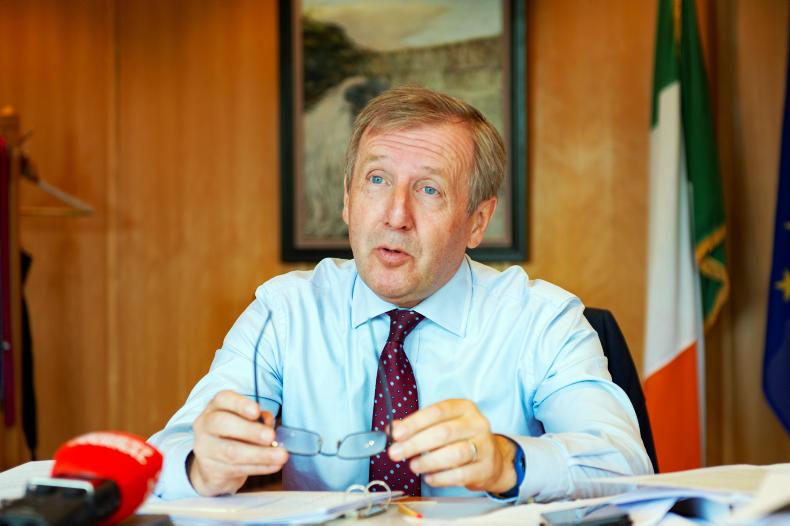
Former Minister for Agriculture Michael Creed.
Michael Creed attended his last council in May. His successor, Barry Cowen, was in place for the June meeting, held remotely due to COVID-19.
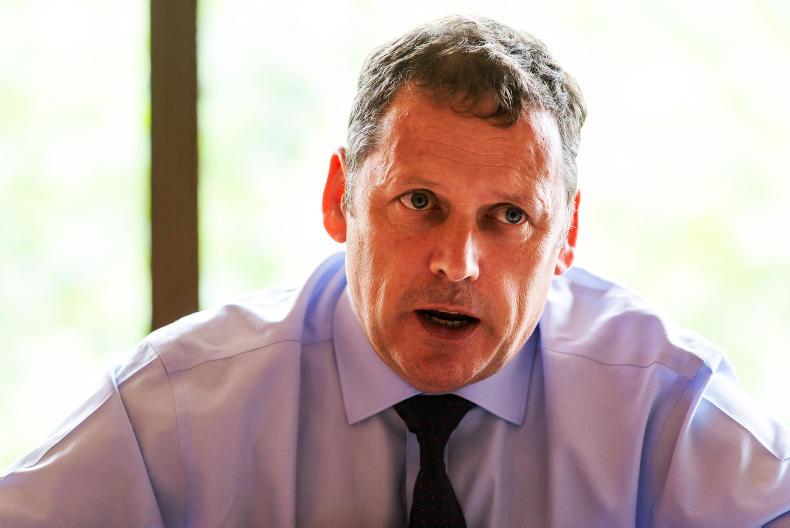
Barry Cowen. \ Philip Doyle
Following Cowen's resignation, Dara Calleary flew to Brussels within 48 hours of his appointment for the July meeting. Now Calleary has also resigned, and we currently have no one in place for the August meeting. It takes place next Monday and Tuesday, before the Dáil meets, so at best we will have a nominee present.
Micheál Martin has for the moment assumed the responsibilities of the Minister for Agriculture, so it's most likely that one of the Ministers of State, Pippa Hackett or Martin Heydon, will represent us.
With Brussels in its summer recess, August's is an "informal" meeting. Don't be fooled by the title - there won't be any golf played. This looser agenda allows the ministers to forge common cause and form blocs with agreed priorities for the vital autumn meetings.
Germany
Germany currently holds the presidency of the EU, so the German agriculture minister Julia Klockner chairs the council, and wants to forge a deal in October.
It is against that backdrop that we must assess the damage to Ireland's strategic interest from the double resignations. It is likely that the vital October meeting will be the first to feature the same Irish minister for a second month since May.
Final arbiters
CAP reform is an exhausting and complex process. It is one of a few areas that sees "co-decision", where the parliament and the ministerial council share responsibility for the final outcome, based on the renegotiation of the Commission's original proposals.
Ireland has always managed to punch way above its weight, aligning ourselves with others to ensure our fingerprints are all over the final document. As the EU has expanded, the process has had to accommodate a bewildering variety of farming, from Malta to Finland, from Spain to Bulgaria to Poland, and indeed Ireland.
The tiny family farms and the huge former collective farms of the former Soviet bloc must be considered. Wine and olives are more important than sheep and cattle in southern states.
The last process, the first to require co-decision, ran for three and a half years. It was Simon Coveney who brokered the final deal during Ireland's EU presidency in 2013. The political capital of that achievement has now probably been largely squandered by recent events.
The B word
If all that isn't enough to concern farmers - on top of the wet harvest, we are also now 129 days from Brexit. No remaining EU country will be as affected by Brexit as Ireland; no sector as affected as farming.
The prospect of swingeing tariffs for this product is a giant iceberg in an already stormy sea
Half our beef still goes to the UK, as well as most of our cheddar cheese - a staple dairy product. The prospect of swingeing tariffs for this product is a giant iceberg in an already stormy sea. That's before you consider potential for chaos at the border on this island. Large volumes of milk cross that broder every day. Lambs come south for processing, pigs and cattle go north.
At present, the British government seem more concerned with shifting the blame for the likely failure of post-Brexit trade talks on to the EU than in striving for a successful outcome.
In this context, the presence of Phil Hogan as the European Commissioner for Trade is seen as central to Ireland's interests, particularly for farming and the agri-food sector, which employs 175,000 people.
If he resigns, Ireland will lose the trade portfolio. Any nominee of the Irish Government to replace him must be scrutinised and approved by the European Parliament. It is not set to re-convene until mid-September, and Europe cannot wait that long for a Commissioner for Trade.
No excuses
None of this excuses the behaviour of Phil Hogan. His attendance at the Oireachtas Golf Society dinner was a spectacular misjudgement.
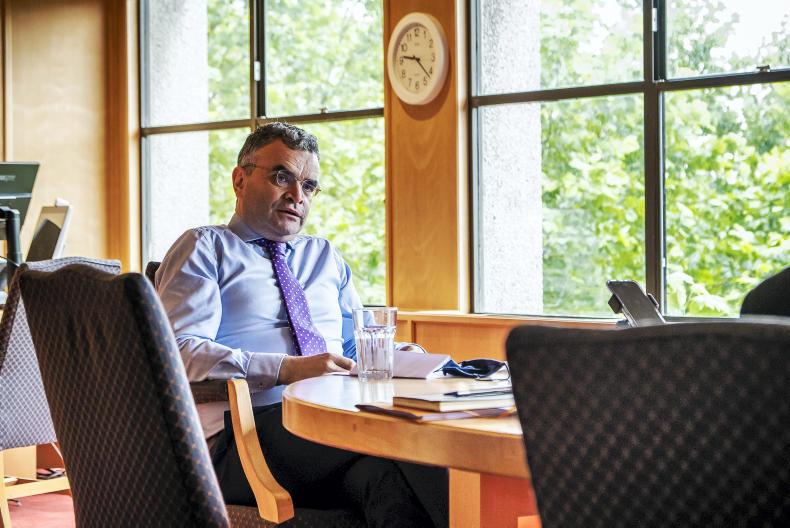
Dara Calleary. \ Philip Doyle
Dara Calleary, Jerry Buttimer, Sean O'Rourke and others have already paid a significant price for their attendance. The public feel abandoned and betrayed by their leaders.
Micheál Martin must be raging. Wanting him to suffer is an understandable reacton. However, having Phil Hogan in the room in those last days of this year may help prevent a catastrophic crash-out by the British.
Failing that, it will mean Europe will continue to engage with the UK's government in the early days of 2021, rather than leaving them to wallow in a mess entirely of their own creation.
A different Commissioner for Trade might decide the British are more trouble than they are worth, and focus on other priorities. Belarus might matter more than Brexit to someone from Poland or Romania. Reforging links with the US under a new administration might be the leading issue for an Italian or Austrian.
We need Phil Hogan to remain in his job more than we need to punish him for his part in "golfgate". He should be accountable for his actions, but realpolitik dictates that the price should not include his current job. Not for his sake, but for ours.
Imagine, if you will, that education was organised centrally by the European Union for all of the member states. Each month, the 27 EU education ministers would meet in Brussels to discuss things like class size, curriculum, compulsory subjects and teacher training.
And imagine that Joe McHugh's successor had been sacked after three weeks, and now another education minister was resigning. The teachers' unions and parents' associations would be extremely concerned about the political dynamic and vocal about those concerns.
What if health was centrally organised by Europe, and Simon Harris and Stephen Donnelly had both come and gone, and now Donnelly's successor was departing under a cloud? Doctors and nurses' representatives would be leading the news every night, and rightly so.
Farming
Of course, it isn't either health or education that is run in centrally across the EU - it's farming. The Common Agricultural Policy has been a central tenet of the entire European project, and one of its great successes. While farming faces many challenges, the EU's 10.5 million farmers produce food with standards of animal welfare, environmental oversight and traceability unmatched anywhere in the world.
In addition, the CAP is also a social policy instrument that has prioritised the family farm, slowed upscaling and maintained rural communities in a way that has not happened in the US.
But those challenges are growing. Globalisation means farmgate prices have been flat for decades. Processors and retailers have expanded their share of the price consumers pay for food at farmers' expense. At the same time, farming must evolve to lessen its impact on biodiversity and reduce its carbon footprint.
Critical juncture
At this critical juncture for farming, the EU's ministerial council is working to agree a new CAP for the coming decade to tackle these daunting issues.

Former Minister for Agriculture Michael Creed.
Michael Creed attended his last council in May. His successor, Barry Cowen, was in place for the June meeting, held remotely due to COVID-19.

Barry Cowen. \ Philip Doyle
Following Cowen's resignation, Dara Calleary flew to Brussels within 48 hours of his appointment for the July meeting. Now Calleary has also resigned, and we currently have no one in place for the August meeting. It takes place next Monday and Tuesday, before the Dáil meets, so at best we will have a nominee present.
Micheál Martin has for the moment assumed the responsibilities of the Minister for Agriculture, so it's most likely that one of the Ministers of State, Pippa Hackett or Martin Heydon, will represent us.
With Brussels in its summer recess, August's is an "informal" meeting. Don't be fooled by the title - there won't be any golf played. This looser agenda allows the ministers to forge common cause and form blocs with agreed priorities for the vital autumn meetings.
Germany
Germany currently holds the presidency of the EU, so the German agriculture minister Julia Klockner chairs the council, and wants to forge a deal in October.
It is against that backdrop that we must assess the damage to Ireland's strategic interest from the double resignations. It is likely that the vital October meeting will be the first to feature the same Irish minister for a second month since May.
Final arbiters
CAP reform is an exhausting and complex process. It is one of a few areas that sees "co-decision", where the parliament and the ministerial council share responsibility for the final outcome, based on the renegotiation of the Commission's original proposals.
Ireland has always managed to punch way above its weight, aligning ourselves with others to ensure our fingerprints are all over the final document. As the EU has expanded, the process has had to accommodate a bewildering variety of farming, from Malta to Finland, from Spain to Bulgaria to Poland, and indeed Ireland.
The tiny family farms and the huge former collective farms of the former Soviet bloc must be considered. Wine and olives are more important than sheep and cattle in southern states.
The last process, the first to require co-decision, ran for three and a half years. It was Simon Coveney who brokered the final deal during Ireland's EU presidency in 2013. The political capital of that achievement has now probably been largely squandered by recent events.
The B word
If all that isn't enough to concern farmers - on top of the wet harvest, we are also now 129 days from Brexit. No remaining EU country will be as affected by Brexit as Ireland; no sector as affected as farming.
The prospect of swingeing tariffs for this product is a giant iceberg in an already stormy sea
Half our beef still goes to the UK, as well as most of our cheddar cheese - a staple dairy product. The prospect of swingeing tariffs for this product is a giant iceberg in an already stormy sea. That's before you consider potential for chaos at the border on this island. Large volumes of milk cross that broder every day. Lambs come south for processing, pigs and cattle go north.
At present, the British government seem more concerned with shifting the blame for the likely failure of post-Brexit trade talks on to the EU than in striving for a successful outcome.
In this context, the presence of Phil Hogan as the European Commissioner for Trade is seen as central to Ireland's interests, particularly for farming and the agri-food sector, which employs 175,000 people.
If he resigns, Ireland will lose the trade portfolio. Any nominee of the Irish Government to replace him must be scrutinised and approved by the European Parliament. It is not set to re-convene until mid-September, and Europe cannot wait that long for a Commissioner for Trade.
No excuses
None of this excuses the behaviour of Phil Hogan. His attendance at the Oireachtas Golf Society dinner was a spectacular misjudgement.

Dara Calleary. \ Philip Doyle
Dara Calleary, Jerry Buttimer, Sean O'Rourke and others have already paid a significant price for their attendance. The public feel abandoned and betrayed by their leaders.
Micheál Martin must be raging. Wanting him to suffer is an understandable reacton. However, having Phil Hogan in the room in those last days of this year may help prevent a catastrophic crash-out by the British.
Failing that, it will mean Europe will continue to engage with the UK's government in the early days of 2021, rather than leaving them to wallow in a mess entirely of their own creation.
A different Commissioner for Trade might decide the British are more trouble than they are worth, and focus on other priorities. Belarus might matter more than Brexit to someone from Poland or Romania. Reforging links with the US under a new administration might be the leading issue for an Italian or Austrian.
We need Phil Hogan to remain in his job more than we need to punish him for his part in "golfgate". He should be accountable for his actions, but realpolitik dictates that the price should not include his current job. Not for his sake, but for ours.







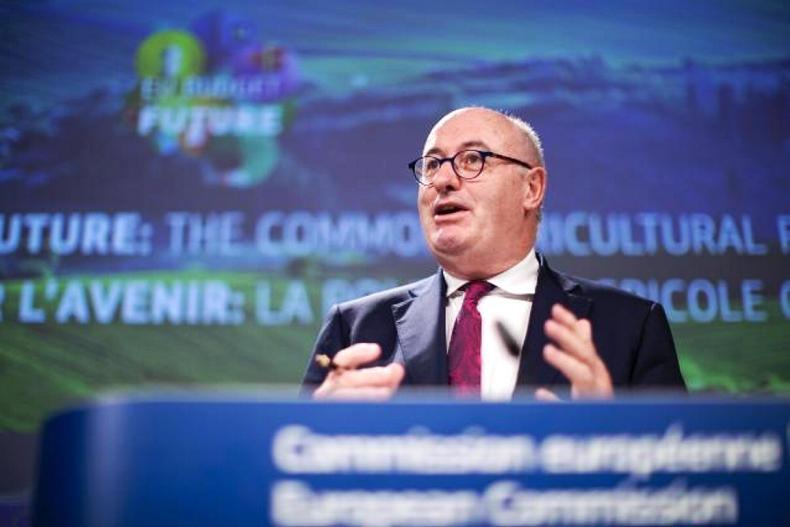
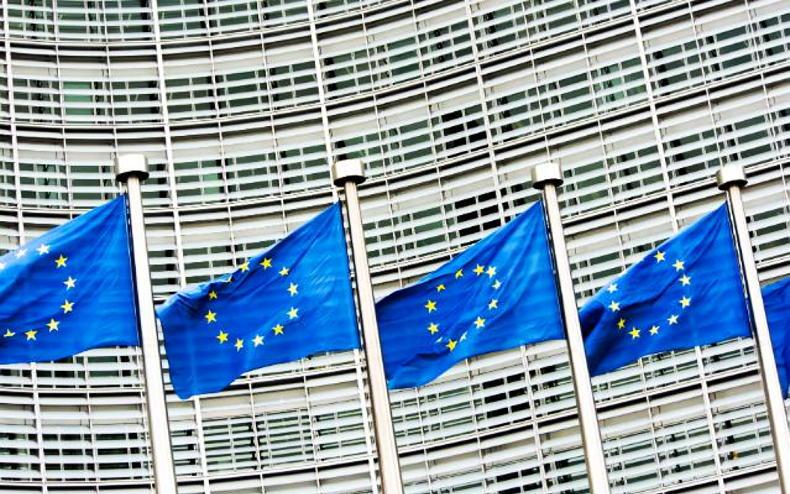

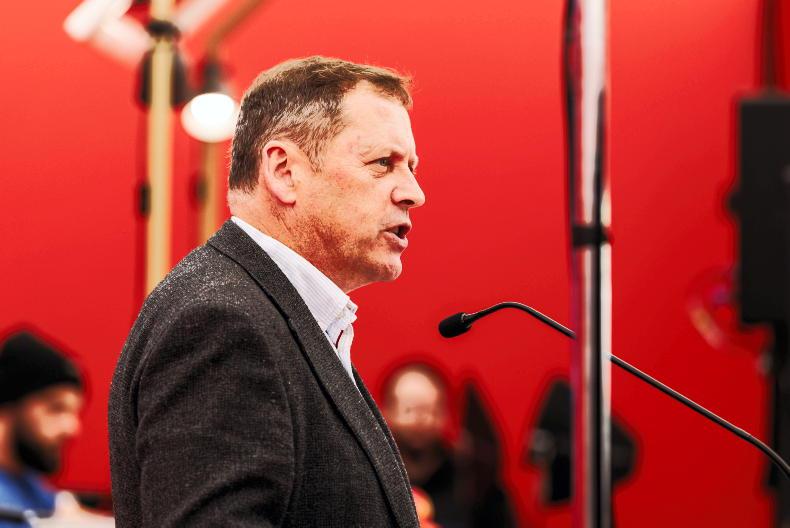


SHARING OPTIONS